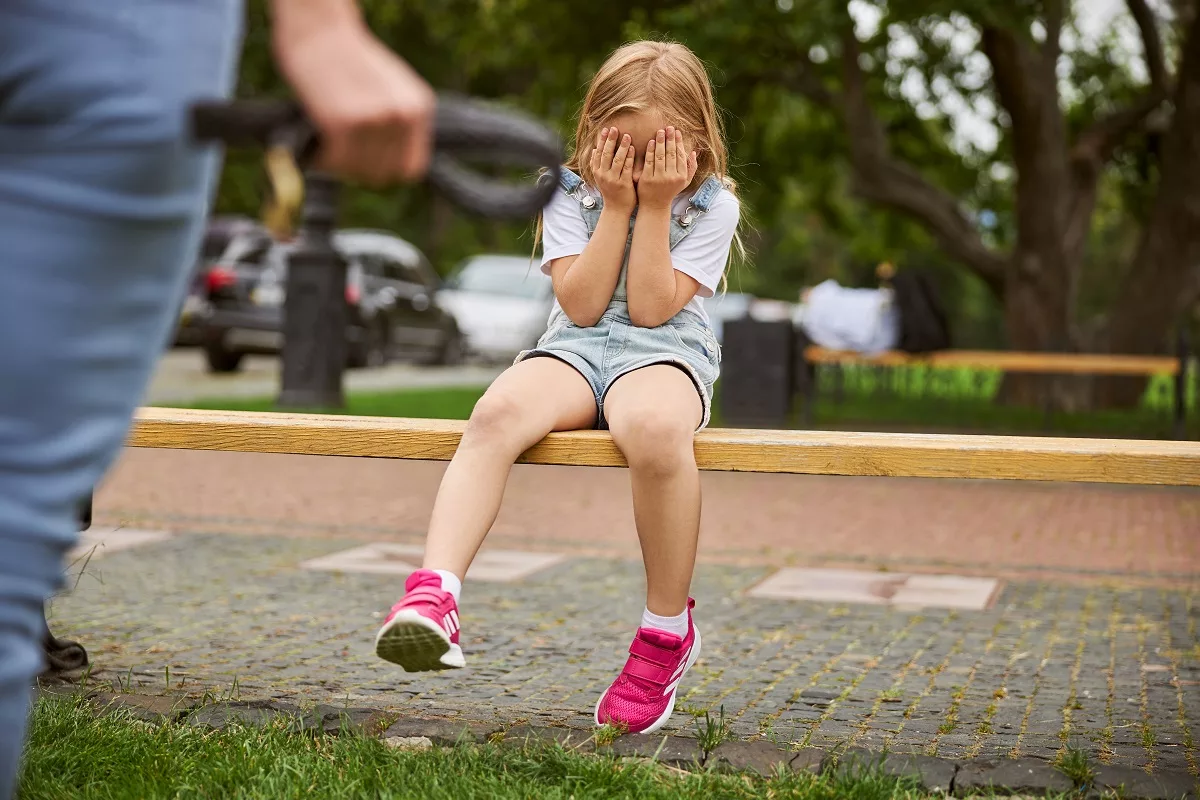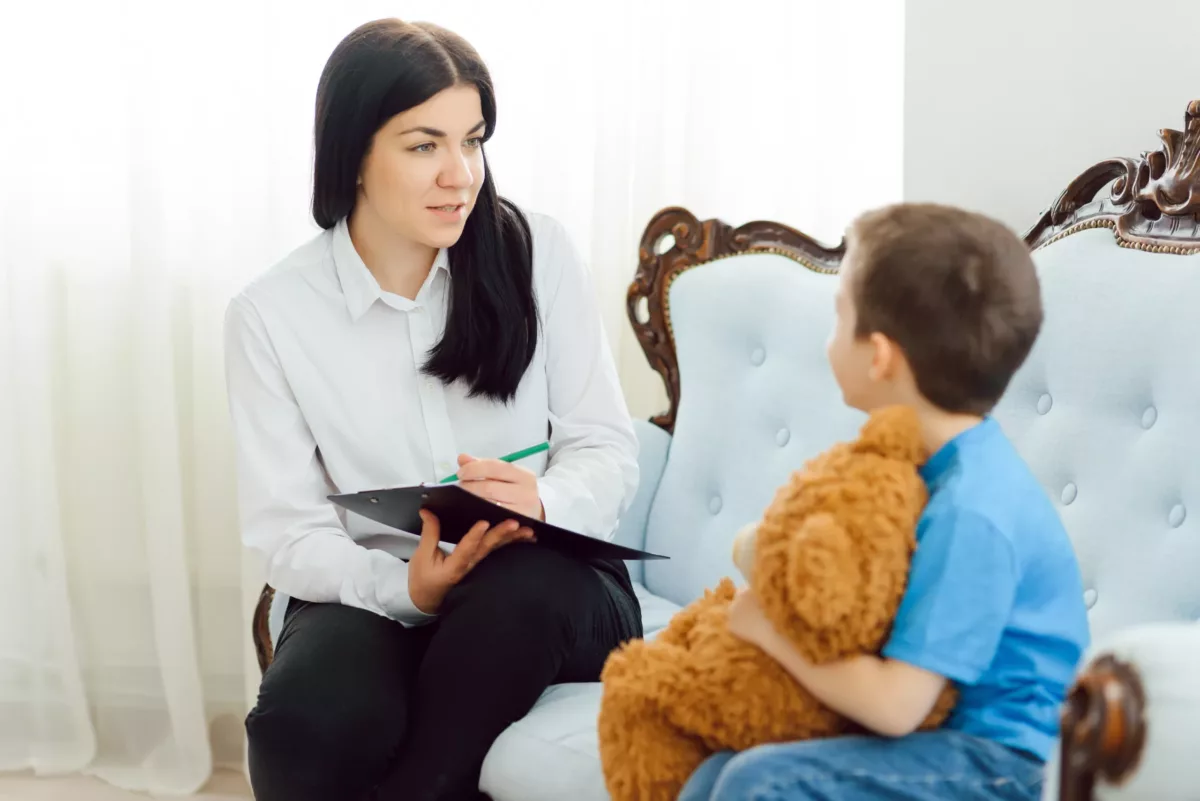Intentional mistreatment or harm to a child who is younger than 18 years is considered child abuse. However, it may happen in multiple ways that usually occur at the same time. For example:
- Physical abuse – It happens when a child is physically injured or put at risk of harm by other persons.
- Sexual abuse – Any sexual activity with a child is considered child sexual abuse. It involves sexual contact (such as intentional sexual touching, oral-genital contact, or intercourse). Furthermore, it also may involve noncontact sexual abuse including exposure of a child to sexual activity or pornography, filming a child in a sexual manner, sexual harassment, prostitution, and sex trafficking.
- Emotional abuse – This abuse type means injuries to a child’s self-esteem or emotional well-being. It usually includes emotional and verbal assault and ignoring, rejecting, or isolating a child.
- Medical abuse – It happens when a person gives false information about health conditions in a child. As a result, the child is put at increased risk of injuries and unnecessary medical care.
- Neglect – This is failure to provide proper clothing, food, shelter, clean living conditions, affection, supervision, education, or medical care.
Commonly, child abuse happens from a person that the child knows and trusts (such as a parent). It is recommended to report to the authorities if you notice any form of child abuse.
Symptoms
Feelings of guilt, shame, or confusion may occur in a child who is being abused. At the same time, that child may be afraid to tell about this abuse, especially if it occurs from a parent, family friend, or other relative. Check below some red flags of child abuse:
- Behavioral changes (including anger, aggression, hostility, or hyperactivity)
- Withdrawal from activities or friends
- Sudden loss of self-confidence
- Unusual fears
- Mental disorders (such as anxiety, depression, and others)
- Nightmares
- Sleeping disturbances (insomnia)
- Lack of supervision
- School absences that occur frequently
- Defiant or rebellious behavior
- Suicide thoughts or attempts
There are specific symptoms according to each abuse type. However, you should be careful because the following symptoms do not necessarily mean the child is abused. For example:
Physical Abuse Symptoms
- Injuries (including broken bones, burns, or bruises)
- Specific injuries that usually do not match the given explanation
- Injuries incompatible with the child’s developmental ability
Sexual Abuse Symptoms
- Sexual knowledge or behavior that is not appropriate for the child’s age
- Sexually transmitted infections (STIs) or pregnancy
- Inappropriate sexual behavior with other children
- Anal or genital pain, bleeding, or injuries
- Different statements that were sexually abused
Emotional Abuse Symptoms
- Loss of skills that were previously acquired
- Reduced performance at school
- Loss of interest
- Avoiding some situations (such as do not want to go to school or ride the bus)
- Depression
- Social withdrawal
- Loss of self-esteem or self-confidence
- Delayed emotional development
Neglect Symptoms
- Poor growth
- Excessive body weight with medical complications
- Poor personal cleanliness
- Stealing or hoarding food
- Lack of supplies to meet physical needs
- Lack of appropriate attention for medical, psychological, or other problems
Parental Behavior
In some cases, a parent’s behavior may send red flags about the child’s abuse. These include:
- Little concern for the child
- Inability to recognize physical or emotional distress
- Blame the child for different problems
- Persistent berate the child
- Expects the child to provide attention and care to the parent
- Harsh physical discipline
- Inappropriate level of physical or academic performance
- Limits the contact with other people
- Frequently brings the child to medical evaluations including X-rays, laboratory tests, and others
- Regularly offering unconvincing or conflicting explanations for injuries or even no explanation at all
Physical Punishment
Generally, experts condemn any type of violence. However, some people still use spanking to discipline their children. It is important to know that physical punishment does not help and per studies, it is directly linked with worse behavior, mental health issues, difficult relationships (especially with parents), and low self-esteem and academic performance.
If you notice a child who is abused, it is advised to seek help right away. You can call the police department or get information by calling or texting the Childhelp National Child Abuse Hotline.
When a child requires immediate medical help, call 911 in the U.S. or a local emergency number.
Risk Factors
Experts identified some factors that could increase the risk of child abuse. For example:
- Physical or mental disorders including post-traumatic stress disorder (PTSD), depression, and others.
- Family stress or crisis (such as domestic violence, marital conflicts, single parenting, and others).
- Financial stress, poverty, or unemployment
- A medical history of being abused or neglected in childhood
- Families that are developmentally and physically disabled
- Extended family isolation
- Poor understanding of child development and parenting skills
- Misuse of alcohol or illegal drugs
What Are The Possible Complications of Child Abuse?
While some children may cope with the psychological and physical effects of child abuse, others may experience physical, behavioral, emotional, or mental health problems. Check below some examples:
Physical Problems
- Disabilities
- Substance abuse
- Learning disabilities
- Premature death
- Other health problems including diabetes, chronic lung disease, cancer, heart disease, and others
Behavioral Problems
- Withdrawal
- Abuse of others
- Violent or illegal behavior
- Suicide attempts
- Self-harm
- Teen pregnancy or high-risk sexual behaviors
- Problems at school
Emotional Problems
- Difficulties with intimacy
- Low self-esteem
- Unhealthy view of parenthood
- Relationship problems
Mental Health Conditions
These include:
- Eating disorders
- Personality disorders
- Behavior disorders
- Depression
- Anxiety
- Post-traumatic stress disorder (PTSD)
- Insomnia (sleeping problems)
- Attachment disorders
How to Prevent Child Abuse?
There are some steps that may protect your child from abuse. The following tips may help safe and stable relationships for children. For example:
- Love and attention – Listen to your child and be involved in his/her life to develop good communication and trust. Moreover, you should encourage your child to tell you if there is a problem.
- Do not respond in anger – You should take a break if you feel overwhelmed or out of control. Discuss with your doctor about ways to manage stress.
- Think supervision – Never leave a child alone at home, in public, or in other foreign places. It is important to make a rule in which your child informs you where he/she is at all times.
- Check references for babysitters – It is advised to make frequent, irregular, and unannounced visits to see what’s happening.
- Emphasize when to say no – It is important to explain to your child that she/he does not engage in anything that seems uncomfortable or scary.
- It is very important to teach your child to stay safe online
If you are worried that your child may be abused, it is advised to seek help right away. In the U.S. you can get information by calling or texting the Childhelp National Child Abuse Hotline.
Diagnosis
Sometimes, diagnosing child abuse can be difficult. Check below some factors that may indicate child abuse:
- Laboratory tests, X-rays, or other tests
- Physical examination that includes injury evaluation and questions about symptoms and suspected abuse or neglect
- Information about the child’s development and medical history
- Description of the child’s behavior
If you suspect child abuse or neglect, it is advised to report to a local welfare agency. Early detection may help prevent child abuse or stop it.
Treatment
The treatment may help both parents and children in abuse cases. Usually, the first priority is safety and protection for children. The following treatment options help reduce prolonged psychological and physical problems of abuse.
Medical Care
It involves, seeking medical care immediately if you notice a child has an injury or consciousness change.
Psychotherapy
This treatment usually is used to help a child who has been abused and teach your child about healthy behavior and conflict management. Check below some therapies used to treat child abuse:
- Trauma-focused CBT (cognitive behavioral therapy) – This helps a child who has been abused to manage stress and deal with traumatic memories.
- Child-parent psychotherapy – It is a therapy that helps improve parent-child relationships and make a stronger attachment between them.
Frequently Asked Questions
How does a parent protect a child?
Usually, parents protect their children including providing love, supervision, and safety. This also includes teaching the children how to keep themselves safe. For example:
- Create a safe home (for example installing smoke and carbon monoxide alarms)
- Use safety seats (it is advised to get a safety seat for your child)
- Teach safe habits (such as checking traffic signals, looking for cars, paying attention to surroundings, and others)
- Avoid dangerous situations (including do not leave the small children alone at home or in other foreign places)
What are the symptoms of childhood abuse trauma?
- Prolonged depression and anxiety
- Fear of attachment and relationships
- Intense emotional reactions
- Dissociation
- Difficulty with trust
- Substance abuse
- Nightmares
- Insomnia (sleeping problems)
If any of the previous symptoms occur in your child, immediately contact your healthcare professional.
What are the potential child abuse complications?
These include:
- Psychological, behavioral, and physical problems
- Mental disorders (including post-traumatic stress disorder also known as PTSD, personality disorders, and others)
- Adverse brain development
- Chronic health conditions
This article does not contain a complete list of complications caused by child abuse. For more details, discuss it with your healthcare professional.




